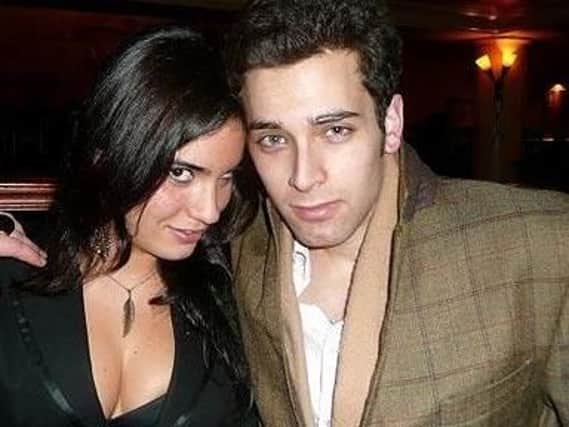22-year-old who murdered his dad is denied say over his gravestone


A Church of England judge has refused the jail cell plea from Mark Alexander who is serving a life sentence for the murder of his father, Samuel Alexander.
The judge said that in the circumstances it would be an “affront and an offence” to allow such wording.
Advertisement
Hide AdAdvertisement
Hide AdAfter killing his father public school educated Mark Alexander first let the corpse decompose. Then he burned some parts of it. After that he buried the rest in concrete in the back garden of the Buckinghamshire home they had shared and covered it with earth in the hope the remains would never be found. He also lied to people saying his father was still alive.
However, in 2010 at the age of 22 he was jailed for life the murder in 2009 of his 70-year-old father. At his trial it was claimed that the killing took place there was tension between the two of them.
Mr Samuel’s remains were discovered by police in the back garden of the home they shared in Drayton Parslow, Buckinghamshire.
Later Mr Samuel’s remains were buried in Holy Trinity Church yard at Drayton Parslow and a memorial stone was put over his grave with the words ‘Father, Teacher, Linguist’ on it.
Advertisement
Hide AdAdvertisement
Hide AdHowever, Alexander, who was ordered to serve at least 16 years in prison before he is even considered for parole, pleaded from his prison cell for the word “Beloved” to be added in front of the existing words.
But the Rev Alexander McGregor, Chancellor of the Diocese of Oxford, in his role as a judge of the Church’s Consistory Court which has to give consent on such matters, has turned down the plea which had already drawn objections from the local Rector, the Rev Simon Faulks, church warden, John Preston and two parishioners.
In a judgment running to nearly 4,000 words Chancellor McGregor said he had no doubt that Alexander wanted the word ‘Beloved’ included on the gravestone.
He said it was not possible for the court to know whether the Alexander had loved his father or whether he loves him now but he did not exclude the possibility.
Advertisement
Hide AdAdvertisement
Hide AdHowever, describing what Alexander had done he said the judge who jailed him had referred to the steps he had taken to conceal his father’s body, after he had left it to decompose for a time.
He continued quoting the trial judge : “The Petitioner ‘took very considerable steps to bury the body in three layers of mortar and a final layer of commercial cement in the back garden of the home which the deceased and his father had shared.
“Thereafter he took steps to place a great deal of soil over the concrete grave with the intent that it should not be discovered. Going along with that was clearly some attempt by the defendant to burn parts of the body, no doubt either to seek to destroy it or parts of it which may show evidence of particular injuries.’”
And he said the judge had added that Alexander had “told lie after glib lie to neighbours and others and ultimately to the police” to seek to cover up what he had done.
Advertisement
Hide AdAdvertisement
Hide AdGiving his reasons for refusing permission for the addition to the gravestone he said : “The Petitioner’s (Alexander’s) wish to amend the inscription is certainly at odds with the way in which he treated his father’s body after he had killed him.
“The Petitioner treated his father’s body in a sacrilegious manner and sought to hide it, thereby preventing decent burial. That of itself is enough, in my view, to bring the balance down against the Petitioner.
“The way the Petitioner treated his father’s body is inconsistent with an amendment of the inscription so that it would imply that the Petitioner loved his father. That is so irrespective of what the Petitioner’s true inner feelings are, as a memorial in a churchyard is a public, not a private, commemoration of the deceased.
“It would, objectively considered, be an affront and an offence to the parishioners at large for a memorial in the churchyard – a memorial marking the place where his body now lies – to state that the late Samuel Alexander was a ‘Beloved’ father when it is known that his son not only murdered him but subsequently treated his body in the ways described in the sentencing remarks referred to above.
“It would be entirely reasonable for the parishioners to feel affronted and offended were the inscription to be amended in the way proposed.”